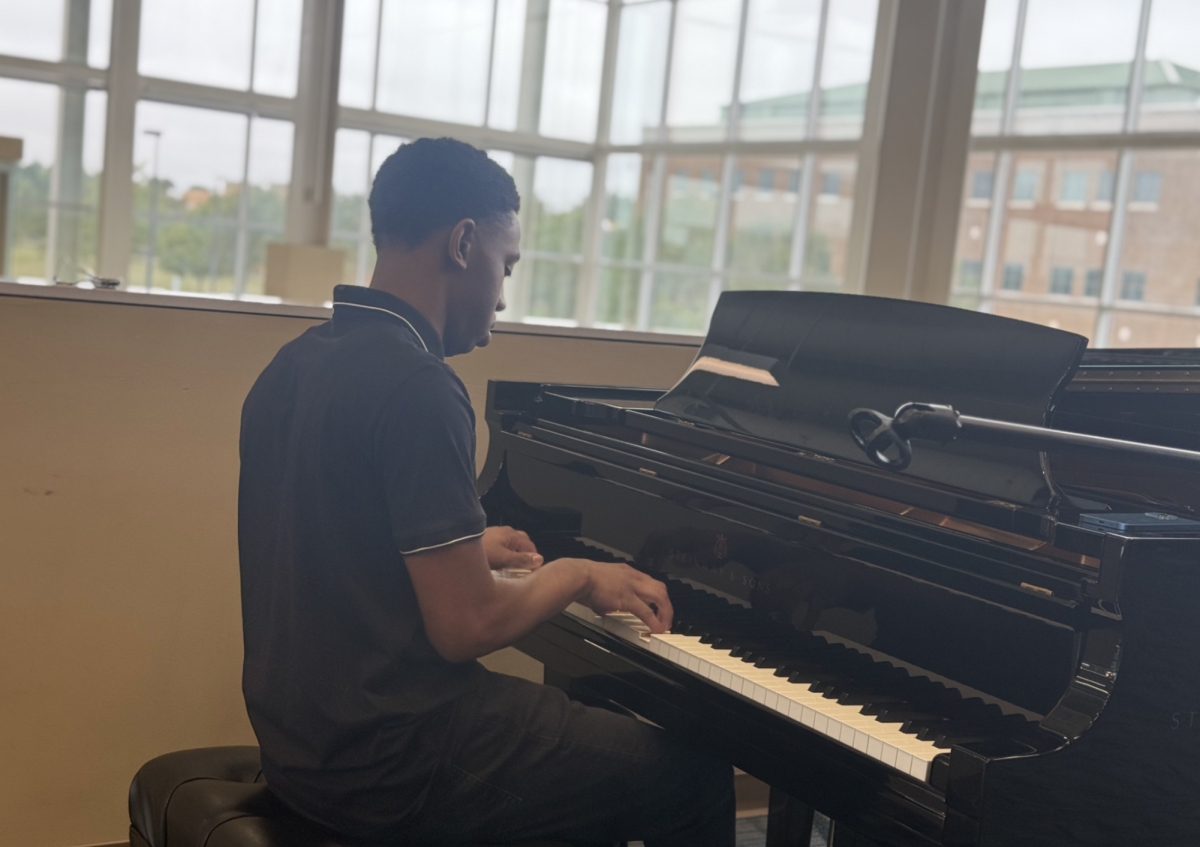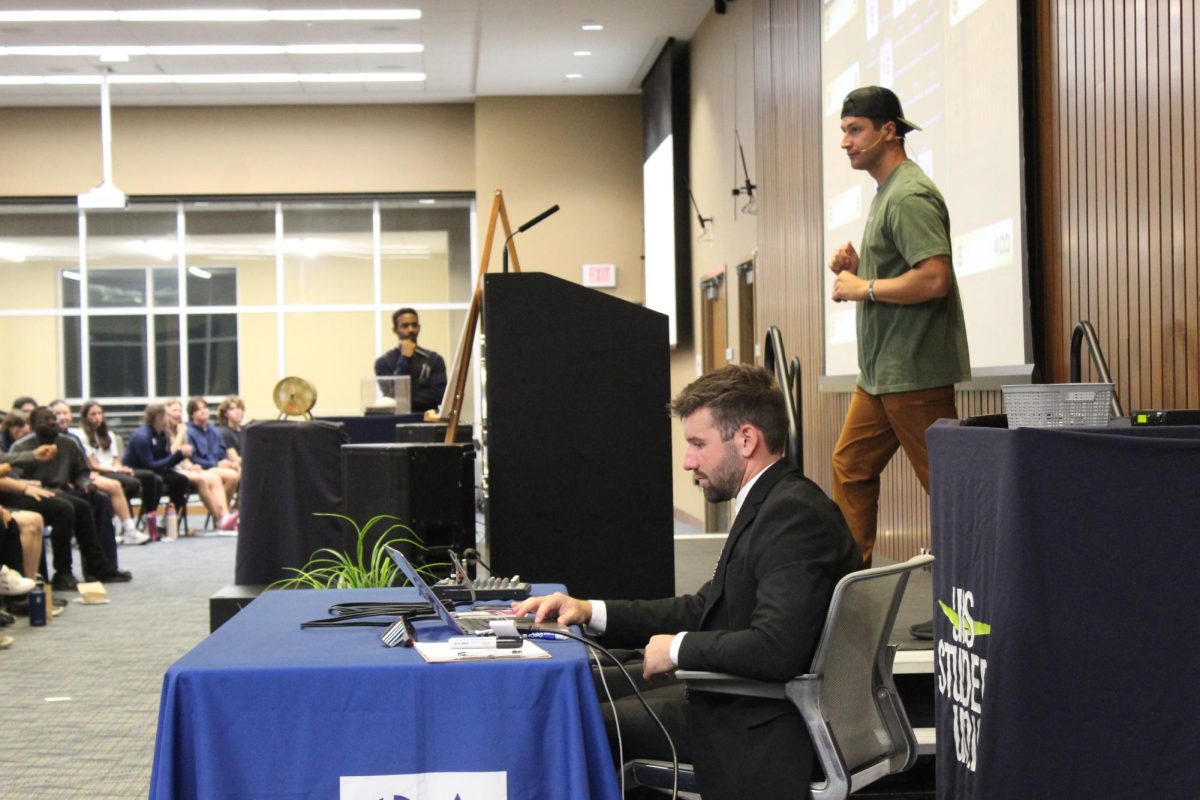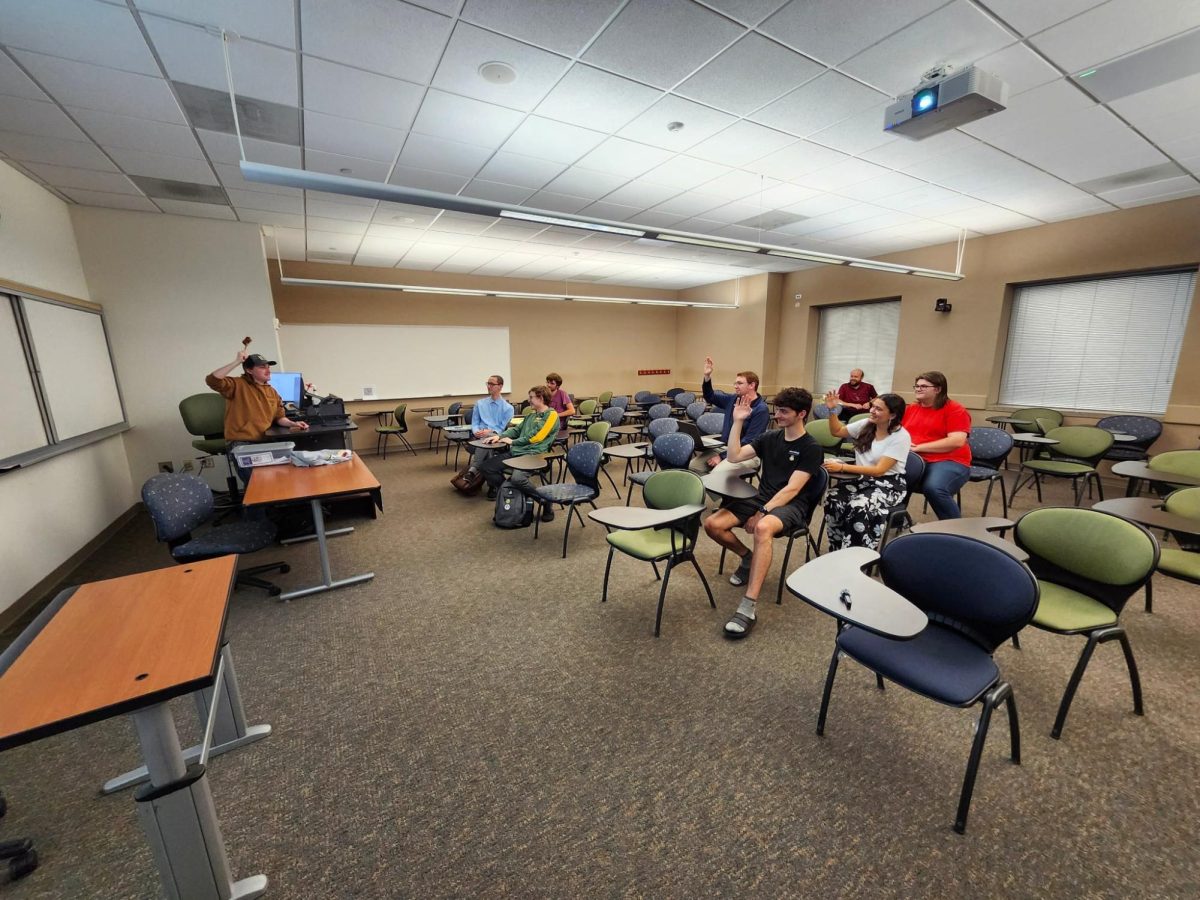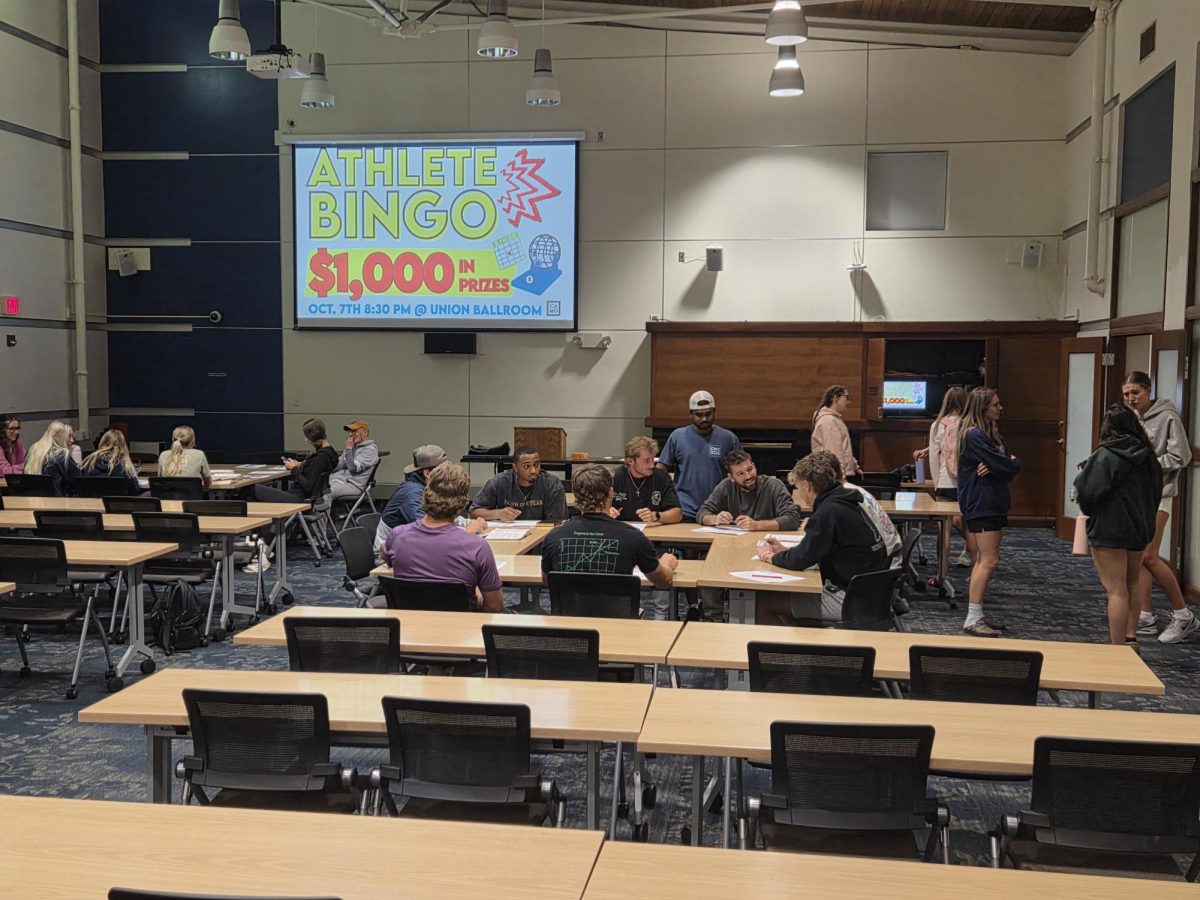Political Art and the Public Sphere, an ECCE speakers series at UIS, is holding a series of events this Fall semester on the topic, “Power, Politics, HIV.” The first event included a screening and discussion of the film Blue, which was written and directed by Derek Jarman, who died from AIDS-related complications months after its release.
The film, first broadcast in 1993 on the BBC, focuses on Jarman’s illness using unconventional film techniques. Aside from brief introductory and ending credits, the screen is filled with only the color blue during its entire 79 minutes, the story being told through a blend of narration, sound effect, music, and song. Jarman enlisted this technique, in part, to reflect his failing eyesight as a result of complications from AIDS.
After the film, Richard Gilman-Opalsky, Associate Professor of Political Science, facilitated a discussion along with Michael Murphy, Assistant Professor of Women and Gender Studies, who is this semester’s guest host for PAPS. Many in the audience agreed that it was difficult to focus on the screen, with some actually turning away, closing their eyes, or seeing shapes and patterns. Those in attendance differed on what effect the color had on them, with some believing it to be the color of sadness and others feeling comforted by it.
Allison Cartwright, a senior in Sociology and Anthropology, described the viewing experience as intense. “I was really uncomfortable and felt like I wanted to leave multiple times,” she says.
The film juxtaposes the sounds of medical equipment, hospital waiting rooms, ethereal music, and poetic narration by Jarman, who describes his struggles with physical illness, the social impact of the disease, and his reflections on world events. Gilman-Opalsky says that “in a sense, what we were listening to was a person dealing with dying, and we have to confront the fact that the experience of an honest exposé about self-consciously dying ought not to be too enjoyable.”
Murphy said some critics have called Jarman’s technique in the film “post-cinematic.” Despite the audience behaving according to standard film viewing etiquette and holding an expectation of what a movie is supposed to be, “There weren’t really any images that bore any resemblance to anything that I think most of us have seen when we go to watch a film. I see film all the time,” he said. “It’s usually not an hour and 17 minutes of the color blue projected on the screen that has these kinds of physiologically effects, which call me to a kind of presence, that call me to fully inhabit my body in ways that can actually be painful to do.”
PAPS theme this semester, “Power, Politics, HIV,” coincides with the 30th anniversary of the discovery and naming of the HIV virus. “Since its naming in 1982, there have been 30 million deaths worldwide,” Murphy said. “There are currently somewhere in the range 34 million more people infected with HIV.”
Despite the prevalence of the virus worldwide, many issues related to it are misunderstood or ignored. Gilman-Opalsky states that one of the goals of PAPS is to provide programming for “ignored, marginalized, misrepresented, underrepresented topics and issues.” The discussion following provides “a place where we have conversations that are difficult to find elsewhere,” he said. “We can talk about controversial things that need the public sphere, that need us or else they won’t get discussed.”
Jarman’s film confronts both the personal, human side of HIV and the enormity of the pandemic through a non-traditional viewing experience. “At the physiological level, my sense is that this film inscribes itself on your being,” Murphy said. “We are in a sense called to a particular presence because of this film and enlisted in an army of people who care about this issue.”
PAPS continues this semester with events in October and November. On October 22, the film is RED RED RED, which addresses an Iowa law that restricts freedoms for those living with HIV. The director will be on hand to answer questions and discuss the film. November 12 is the film Fig Trees, an account of South African AIDS activist Zackie Achmat who went on a treatment strike in 1999. Both events start at 6 p.m. in Brookens Auditorium.








